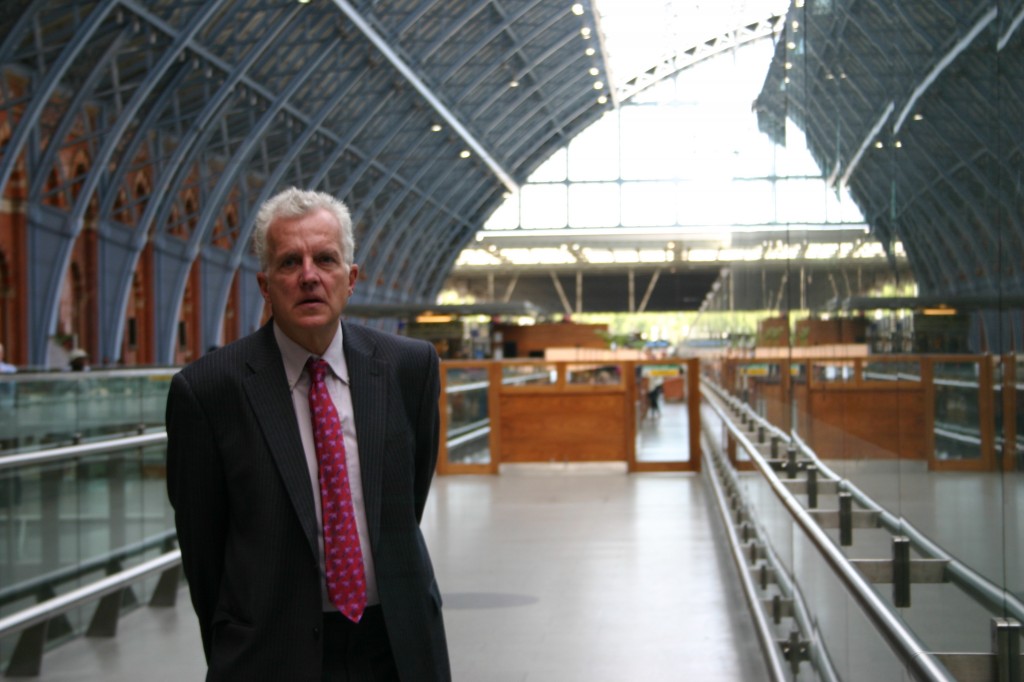The biggest risk of the long term effect of the pandemic is that we see a permanent change from the collective to the individual. The prospect that communication with the rest of the world will largely be undertaken from sitting at our computers and shouting at other people through Zoom is dystopian in the extreme.
This has been a shift in society long before the pandemic in so many ways. Take, for example, the development of the individualised entertainment system represented by the television compared with the collective notion of going to the cinema. Moreover, with the ability to download whole box sets and the amazing proliferation of channels, this has become even more of a personalised experience compared with the great days of watching the denouement of a popular series.
There are, though, countless other examples throughout society. We can now mostly afford to buy books rather than going to the library. We drink more at home – in front of our screens – rather than going to the pub, And, of course, we travel far more in cars than by public transport.
I struggle to see how public transport is going to recover from this unless there is an intelligent government in charge aware of the wider benefits of having a good public transport system. I get so bored with having to argue, yet again that buses and trains are a public good whose benefits far exceed the amount of money captured at the fare box. Yet, time and again, the providers of public transport, especially those in the private sector, fail yet again to set out the argument for public subsidies for transport.
It would take a series of coherent and focussed measure to restore the numbers using the railway to pre-Covid levels. There is, sadly, no sign of that happening. Instead we have the highest fares rises for a decade, cutbacks in timetabled frequencies, reduced quality of service both on board and at stations, and precisely the kind of attitude for which British Rail was rightly criticitised – though as now, decisions were made by the Treasury.
This rant was the result of feeling wistful one morning as I cycled past what used to be the Coronet cinema in Holloway Road and is now a vast Wetherspoons pub which at least is still something of a collective experience. But I should have focussed on the revamp of my website, carried out by my excellent and long standing partner, Primary Image, who have done a fabulous job of refreshing what has become a rather vast site.
I think the new site looks fab but do please provide me with feedback. The site had not been revamped for eight years and while it stood the test of time, it was important to refresh it and, crucially, made it perform better on phones. So please test it out.
There are plenty of new uploaded pieces as I have been rather busy and it has been a long time since the last newsletter. They include a fun piece for the, would you believe it, Daily Telegraph, a comment article for The Guardian on HS2, an editorial for Railwatch, the magazine of Railfuture and two new Rail columns here and here
And lastly, on the books front, my revised version of the Crossrail story is coming out in paperback in February. To order a copy for £11 including postage, email me at Christian.wolmar@gmail.com and I will advise you as soon as they are in. My book on the history of British Rail is now in the final stages of production and will be published on June 9th by Penguin, so watch out for that.
In very exciting news, Atlantic have commissioned my book on the role of the railways in the Normandy invasion, a much neglected area of the history of World War Two. I am off, as soon as I a allowed, to France, both to visit the sites and to comb through much material in the Bibliotheque Nationale. It is a very exciting project but heavily reliant on primary sources. If you know of any stories from that period of the war, or material that may be tucked away in some archive, please do get in touch.
Let’s hope 2022 is better than 2021 and 2020 and maybe, at last, we can put lateral flow tests, masks, social distancing and all other aspects of the pandemic behind us, even if we can never forget the terrible death toll and the mistakes that made it higher than it needed to be.
Happy New Year folks
Christian Wolmar
